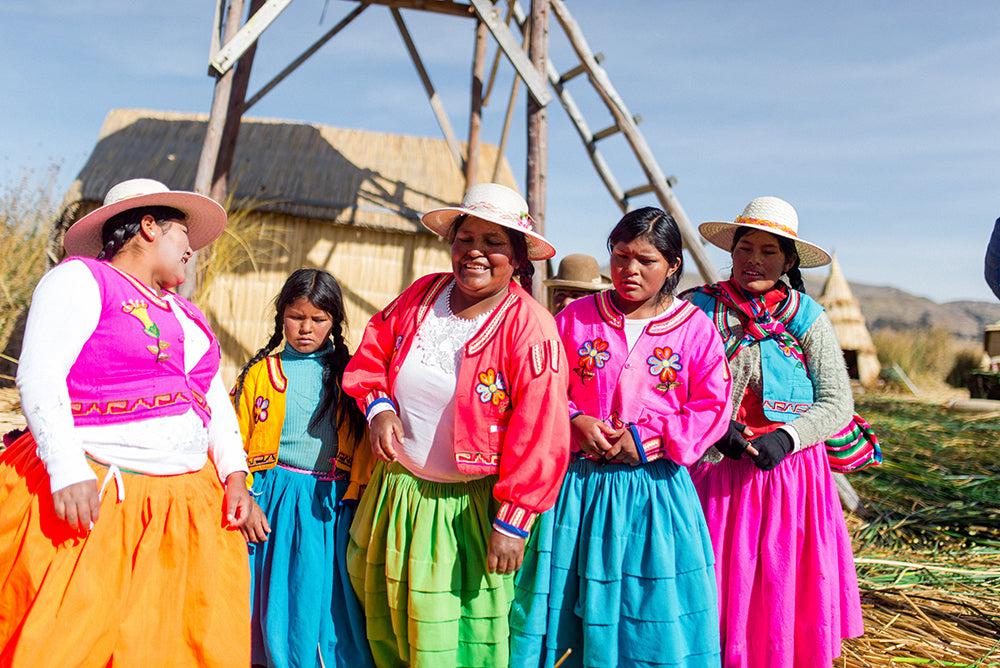What Exactly IS Fair Trade?

It's a term that you've most likely heard many times, but do you really know what it means? Fair Trade is a global movement made up of product and ingredient producers, ethical companies, consumers, advocates, and organizations that practice putting people and the planet first. This movement helps create solutions to issues including:
- The overuse of natural resources
- Women's Empowerment
- Refugee Livelihoods
- Human Rights
- Inequality
- Sustainable Farming
Fair Trade Enterprises support:
- Organic Agriculture
- Adopt Circular Economy Product Processes
- Generate New Models of Social Enterprise
- Champion the Dignity of Workers, farmers, artisans, and communities around the world.
Why is this important when it comes to your beauty products?
There is an entire supply chain of people behind the products we buy and use every day. Achieving that perfect GLOW or concealing our "less than favorite" attributes be it a fine line, freckle or skin discoloration are top priorities when shopping for beauty products. The rise in conscious consumerism also encourages us to seek out products that are cruelty-free, eco-friendly, and made with GOOD-FOR-YOU ingredients.
However, do you ever stop to think about the PEOPLE who are sourcing these ingredients? Just like the food we eat, many of the ingredients in our beauty products come from crops that are produced and farmed by people around the world. Many of them are women. Fair Trade practices ensure that these workers receive the treatment and pay they deserve.
There are 10 basic principles of Fair Trade
1. Create Opportunities for Economically Disadvantaged Producers
This means supporting marginalized, small producers, whether these are independent family businesses, associations, or co-operatives. Fair trade seeks to move vulnerable producers out of poverty and into a secure income, self-sufficiency, and ownership.

2. Transparency and Accountability
The communication between all parties involved in the supply chain - from the management to the commercial relations - must be transparent, accountable, and open. This should be table stakes, not just in business, but in everyday life. How else are you supposed to earn someone's trust?
3. Fair Trading Practices
An overall unity between organizations and producers is essential and one that should be consecrated with trust and mutual respect. Maximizing profits at a producer's expense is not tolerated. Championing cultural practices and paying on time is the only way for effective fair trade business practices to be achieved. The goal of fair trade is simple…it’s to create a fairer world for everyone to live in.

4. Payment of a Fair Price
Fair payment has been mutually negotiated and agreed upon by all through ongoing dialogue and participation, which provides fair pay to the producers and can also be sustained by the market, considering the principle of equal pay for equal work by women and men. The aim is always the payment of a Local Living Wage. Fair payment is made up of fair prices, fair wages, and local living wages.
5. Ensuring No Child Labor and Forced LaborAs we go about our busy, daily lives, it's almost inconceivable to think that child labor could be going on, let alone have any involvement in many of the products we purchase. According to The International Labor Organization and UNICEF, child labor has risen for the first time in 2 decades to affect 160 million people, up from 8.4 million children in the last 4 years. Any Fair Trade organization must adhere to the United Nations Convention on the Rights of the Child, and local law on the employment of children. Any involvement of children in the production of products is disclosed and monitored and does not adversely affect the child's well-being, security, education, and need for play.

6. Commitment to Non-Discrimination, Gender Equality, Freedom of Association
When an organization follows the guidelines of fair trade, this principle requires that they do not discriminate based on race, caste, nationality, religion, disability, sexual orientation, political affiliation, or GENDER, and they are required to promote gender EQUALITY in every stage of the game. Bottom line, fair trade businesses acknowledge, appreciate, and promote the importance that women make in the world every day of the year.
7. Ensuring Good Working Conditions
A safe and healthy working environment is nothing to take for granted. Unfortunately, it happens all the time, especially in places of work for marginalized producers. When a business is committed to Fair Trade, it must comply with national and local laws on health and safety as well as working hours, making routine inspections, and keeping employees informed about illness statistics and injuries. At the end of the day, it’s about treating people with humanity and respect.

8. Providing Capacity Building
Fair trade organizations uplift and foster development among their producers through specific activities to help them improve their management skills, production capabilities, and access to markets. This type of nurturing from within creates self-empowerment, self-worth, and growth for the employees and the businesses. It’s a win-win.
9. Promoting Fair Trade
Walking the walk is one thing but promoting what you do is another. That’s what this principle is all about. Fair Trade organizations are doing incredible work for people and the planet. But if they don’t tell others about it, then how will they continue to raise awareness and greater justice for all? Organizations must therefore also raise awareness about Fair Trade and the greater justice it provides throughout world trade.

Fair Trade practices put people and the planet first. Some of the ways this is done is by focusing on the use of raw materials from sustainably managed sources and buying locally where possible are top priorities. Reducing energy consumption, using renewable energy when possible, engaging in organic or low pesticide production methods, and working with recycled or easily biodegradable materials for packing and goods dispatched by sea are some of the other methods this principle is handled.














